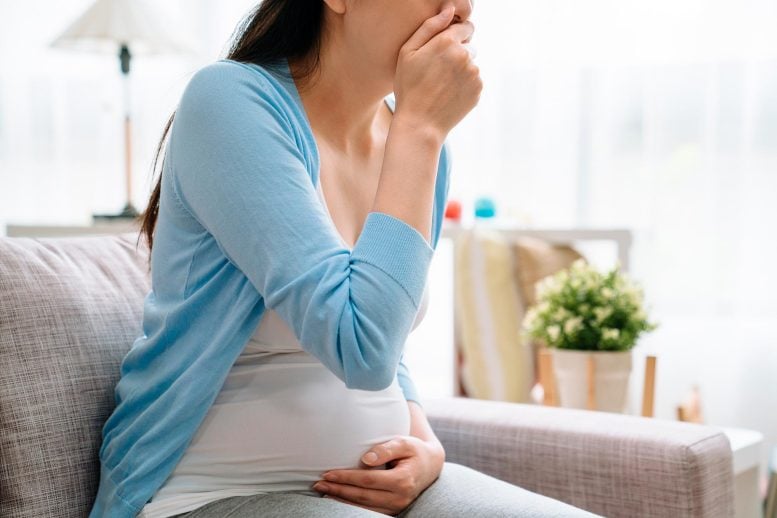
Severe morning sickness, hyperemesis gravidarum, impacts mother and baby health, with current treatments focusing on symptom management and avoiding cannabis.
Hyperemesis gravidarum, a severe form of morning sickness during pregnancy, can adversely impact both maternal and infant health. Detailed in the Canadian Medical Association Journal, a new review offers clinicians insights into the causes, diagnosis, and management of this condition.
Although nausea and vomiting are typical in pregnancy, affecting up to 70% of pregnancies, severe cases can prevent adequate intake of food and drink, leading to weight loss and dehydration.
“[Hyperemesis gravidarum] can have detrimental effects on maternal quality of life and may lead to short- and long-term adverse outcomes among offspring,” writes Dr. Larissa Jansen, Amsterdam Reproduction and Development Research Institute, Erasmus MC, Rotterdam, the Netherlands, with coauthors. “Management of hyperemesis gravidarum requires considerable health care resources, as it is a common reason for hospital admission and emergency department visits in the first trimester.”
The cause of hyperemesis gravidarum is not completely understood, but risk factors include pregnancy at a young age, female fetus, multiple or molar pregnancy, underlying medical conditions, and history of the condition during previous pregnancies.
Treatment is aimed at relieving symptoms and includes starting an antiemetic (anti-nausea) drug and other medications if the antiemetic is not effective. Remedies such as ginger products may alleviate mild nausea and vomiting for some people, but the evidence on its effectiveness in people with hyperemesis gravidarum is uncertain.
The authors caution against using cannabis for hyperemesis gravidarum.
“Use of cannabis in pregnancy has been associated with adverse neurocognitive outcomes in offspring, as well as other adverse pregnancy outcomes. Therefore, we advise against the use of cannabis in pregnancy.”
The authors note that there are many unanswered questions about how to prevent and manage hyperemesis gravidarum and that more research is needed.
Reference: “Diagnosis and treatment of hyperemesis gravidarum” by Larissa A.W. Jansen, Victoria Shaw, Iris J. Grooten, Marjette H. Koot, Caitlin R. Dean and Rebecca C. Painter, 15 April 2024, CMAJ.
DOI: 10.1503/cmaj.221502